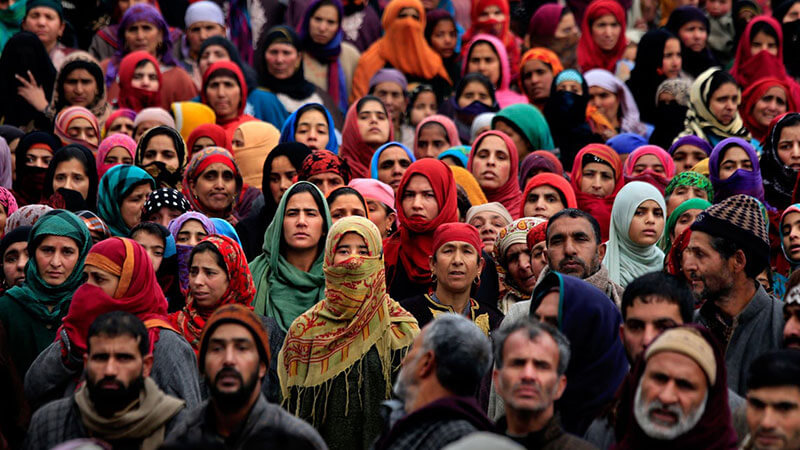Resting in the lap of the spectacular Himalayan mountains, the Kashmir valley, along with its majestic beauty, is also famous for its rich culture.
The scenic land is a testimonial to the historic influence of Islam, Hinduism, and Buddhism by the strong presence of religious relics and architectural sites. But the region’s heritage and mesmerizing beauty are overshadowed by decades-long conflict and the new generation of Kashmiris are ignorant of the unique religious bond and culture of their land.
Kashmir culture is highly influenced by the Central Asian, northern rim of South Asia and Persian culture. The culture of Kashmir is a blend of multiple customs that came from Northern Pakistan, Tibetan Chinese and Northern India. The state enjoys the presence of mixed religions and that amalgamates Muslim, Hindu, Sikh, and Buddhist people who make Kashmir more culturally unique. These ethnically and religiously different people living together have given it the major characteristics of tolerance, humanism, and religious harmony which is collectively called by the profound name Kashmiriyat. Whereas, Ladakh has its own distinct culture.
Kashmiri, Urdu, and Gojri are the official language of Azaad Jammu Kashmir (Pakistan-administered Kashmir) while, some other languages like Pahari, Hindi, Dogri, and Ladakhi are spoken in other parts of Kashmir. Variation in languages is also found, especially when someone travels to different parts of Kashmir. The difference comes in accent and pronunciation.
Some people of particular areas of Kashmir follow folkways, taboos, mores, and rituals. Moreover, different types of dressing, food, ceremonies are also observed here and most importantly, rice is their staple food. The majority of the people maintain their own farms where they grow fruits, herbs, and vegetables and also keep their goats, cows, and hens, etc.
They prefer to do breakfast with yogurt, kulcha, naan, or pink tea, especially in Muzaffarabad. Black tea or pink tea is their obligatory item after every food. The most strange and noticeable thing for other people beside Kashmiri people is “they add salt into the tea (black tea with milk) instead of sugar”.
Kashmiris use mudded stoves and are fired with woods is gas is not available. People with no supply of tapped water travel to lakes and chashmas to fill their containers with water. There is no concept of big houses rather; there is a common trend of mudded houses. Kashmiri people like to walk more instead of traveling via vehicles. This habit helps them healthy and fit and it helps them to stay away from all kinds of illnesses.
People of Kashmir are hardworking and they like to live independently, their main source of income is agriculture and cultivation where they do farming for their livelihood. The tough climate region and their tough routine due to the lack of essential facilities in their region have made them courageous and strong. Their bravery can be judged by the hardships they face daily, they strive hard for living regardless of the fact that they live in a country where most of the parts have the independence of using facilities and they do not have even a cemented house and yet, they love their area.
These people are extremely patriotic and follow all teachings of Islam.
As Emperor Jahangir rightly said about the region:
“If there’s a paradise on Earth
It is this, it is this, it is this.”
Image source

















